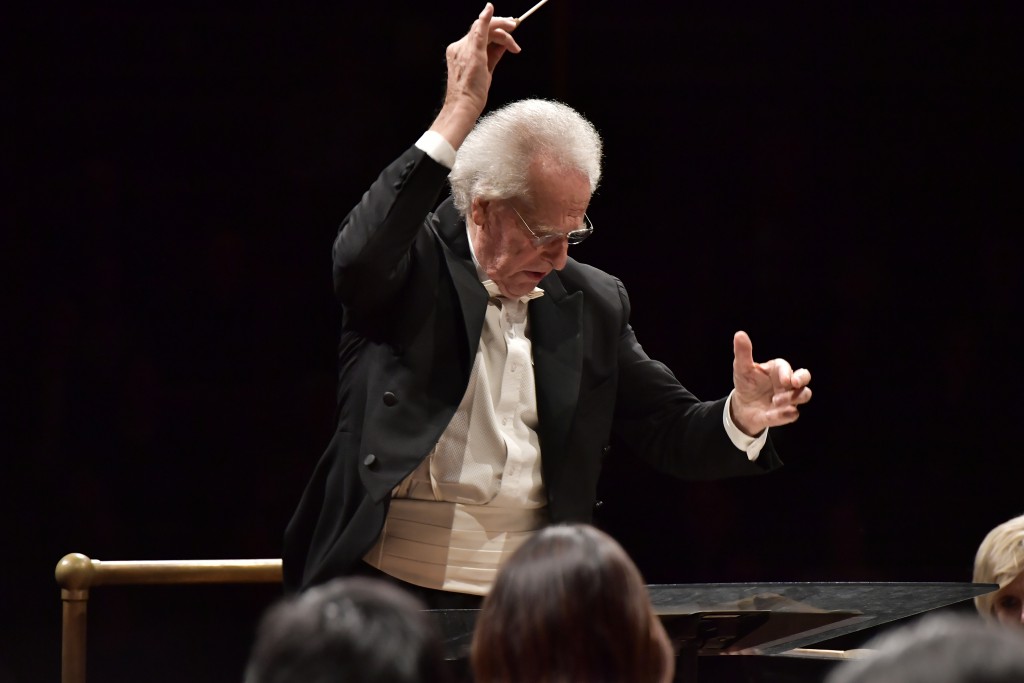Rare Berlioz and cornerstone Sibelius from the Boston Philharmonic
Italy has long been a destination for composers who wish to escape the trials of life. Tchaikovsky, Strauss, and Mendelssohn ventured there and returned with serenades and symphonies recalling its lush landscapes. Even Sibelius traveled to the peninsula to cope with a bout of depression. Moved by what he saw, he wrote that it was a land “where everything is beautiful, even the ugly.”
Hector Berlioz captured his love for Italy in a number of works, yet none more vividly than in his Harold in Italy. Though it possesses rich textures and attractive orchestration, the work doesn’t crop up on orchestral programs that often. But Thursday night at Sanders Theatre, Benjamin Zander and the Boston Philharmonic brought Berlioz’s creation new and much deserved life. Sibelius’ Symphony No. 2, written on the composer’s Italian visit, rounded out the program.
Berlioz was an avid reader who devoured everything from Shakespeare plays to the latest poetry of the day. When he came across Lord Byron’s Childe Harold he was mesmerized by its rich imagery. But Harold in Italy, which he based upon his reading, recalls the composer’s own experiences rather than that of Byron’s character.
The work, too, is a hybrid of concerto and symphony, having been written for Niccolò Paganini and his newly acquired Stradivarius viola. The solo section, though, revels more in lyricism than in show-stopping technical passages and could have had no better advocate than violist Kim Kashkashian, who was the soloist Thursday night.
As if an actor in a play, Kashkashian made her way from the rear to the front of the stage while playing her opening phrase, a long, melancholic line that captured the depths of Berlioz’s dour mood. Her tone throughout resonated with warmth, and even the work’s bristly sawing passages were shaped in songlike arcs.
Zander led a reading of surging vitality, conjuring Berlioz’s journey with bright tempos. The orchestra responded with grace and precision. Strings played with reverential glow in the second movement, a vision of a religious pilgrimage. Bold and gleaming brasses painted, in sound, images of mountains in the first movement’s rousing conclusion.
The dances and bagpipe tunes of the third movement had a rustic verve. As in Beethoven’s Ninth Symphony, the finale sums up the previous movements before unfolding into fiery passages of its own. A surprise string quartet — two violins and cello placed on the left balcony with Kashkashian supplying the fourth voice from the stage — supplied a moment of solace.
In the first movement of Sibelius’ Second Symphony, Zander led with a careful eye to the details of the work’s mosaic-like structure. Flutes chattered, mournful bassoon lines slithered about, and lonely violin phrases soared overhead.
In the second movement, a journey from darkness to light then back again, the conductor drew out the shimmering brass chords for colorful effect. The third movement coursed with whip-crack energy: Agitated string themes moved urgently, and the middle section flowed in soft bucolic strands. The sweeping theme of the finale put apt finishing touches on a piece known for both turbulence and luminosity.![]()
The concert will be repeated 8 p.m. Saturday at Jordan Hall and 3 p.m. Sunday at Sanders Theatre. bostonphil.org
Posted in Performances
